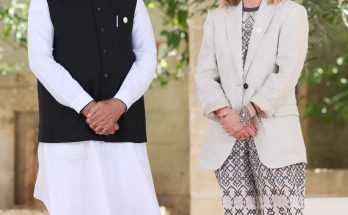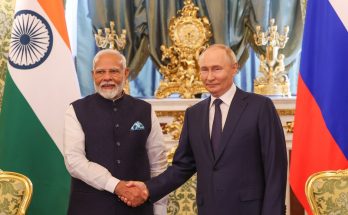 DUBAI: Multilateralism finally triumphed in Dubai, the mecca of hedonism and conspicuous consumption, as nearly 200 participating countries agreed on a historic climate deal that exhorts them to transition away from fossil fuels and embrace a cleaner and greener future. This is the first time that fossil fuels have been mentioned in a COP outcome document since the UN-led global climate summit process was launched twenty- eight years ago.
DUBAI: Multilateralism finally triumphed in Dubai, the mecca of hedonism and conspicuous consumption, as nearly 200 participating countries agreed on a historic climate deal that exhorts them to transition away from fossil fuels and embrace a cleaner and greener future. This is the first time that fossil fuels have been mentioned in a COP outcome document since the UN-led global climate summit process was launched twenty- eight years ago.
The groundbreaking agreement was reached after a thousand visions and revisions for a fortnight, leading to revisions of draft texts. As climate negotiators sweated out and burnt midnight oil over every comma, semi colon and full-stop, over 70,000 participants, a motley crowd of activists, oil sultans, businessmen, academics and students, milled around in the elegantly repurposed Dubai Expo.
Much to the relief of climate negotiators, the deal was announced by COP28 president Sultan al-Jaber on December 13, saving COP28 from the ignominy of failure. In a historic moment, Global Stocktake Text (GST) on a “transition away from fossil fuels,” was adopted at the final session of the annual climate talks COP28 without any objection. The deal includes a comprehensive set of measures that outline a robust strategy to maintain the 1.5-degree Celsius target.
The deal was reached on the morning of December 13 after intense overnight consultations amid the increasing gloom about the perceived failure of COP28. Overnight consultations between COP28 President Sultan Al Jaber and climate negotiators helped bridge differences and helped to finalize a “palatable language” that was agreed to by all.
UN Chief climate negotiator Simon Stiell hailed the COP28 agreement as the “beginning of the end” of the fossil fuel era by laying the ground for a swift, just and equitable transition, underpinned by deep emissions cuts and scaled-up finance.
“Whilst we didn’t turn the page on the fossil fuel era in Dubai, this outcome is the beginning of the end,” said UN Climate Change Executive Secretary Simon Stiell in his closing speech. “Now all governments and businesses need to turn these pledges into real-economy outcomes, without delay.”
The global stocktake is considered the central outcome of COP28 – as it contains every element that was under negotiation and can now be used by countries to develop stronger climate action plans due by 2025.
The stocktake recognizes the science that indicates global greenhouse gas emissions need to be cut 43% by 2030, compared to 2019 levels, to limit global warming to 1.5°C. But it notes Parties are off track when it comes to meeting their Paris Agreement goals.
The stocktake calls on Parties to take actions towards achieving, at a global scale, a tripling of renewable energy capacity and doubling energy efficiency improvements by 2030. The list also includes accelerating efforts towards the phase-down of unabated coal power, phasing out inefficient fossil fuel subsidies, and other measures that drive the transition away from fossil fuels in energy systems, in a just, orderly and equitable manner, with developed countries continuing to take the lead.
India lauds equity, climate justice
There is plenty in the final document to cheer India, which was led by Union Environment Minister Bhupendra Yadav. In a relief for India, the final deal does not target coal exclusively but speaks about transitioning away from all forms of fossil fuels, including oil and gas. The deal advocates a gradual “transition away from fossil fuels in energy systems, in a just, orderly, and equitable manner, accelerating action in this critical decade,” which aims to achieve global net zero greenhouse gas emissions by 2050, aligning with climate science imperatives.

India also approved and supported key outcomes of COP18, including tripling renewable energy capacity globally and doubling the global average annual rate of energy efficiency improvements by 2030.
Mr Yadav congratulated UAE’s COP presidency on the successful outcome of the first global stocktake and its fairness, transparency and free exchange of thought. “We support the proposal of the Presidency on the COP decision document while reiterating the fundamental principles enshrined in the Paris Agreement to act for global good in accordance with national circumstances,” Mr Yadav said during the closing plenary.
“India urges that the determination shown at COP is also substantiated with means to bring it to fruition. This must be based on the principles of equity and climate justice, which is respectful of national circumstances, and where the developed countries take the lead based on their historical contributions,” he added.
While there is plenty to feel good about in COP28, the real test of its success will be fast-tracking of climate finance. The operationalization of the Loss and Damages Fund, with the initial commitment of around $800 million, is a positive step to assure sceptics that this COP is about action, and not just words. However, there is a long road ahead – these financial pledges are far short of the trillions eventually needed to support developing countries with clean energy transitions, implementing their national climate plans and adaptation efforts.
(Manish Chand, is CEO, Centre for Global India Insights, a think tank focused on global affairs and Founder, India Writes Network and India and the World magazine. He is in Dubai to report on and analyse COP28)

Author Profile

- Manish Chand is Founder-CEO and Editor-in-Chief of India Writes Network (www.indiawrites.org) and India and World, a pioneering magazine focused on international affairs. He is CEO/Director of TGII Media Private Limited, an India-based media, publishing, research and consultancy company.
Latest entries
 India and the WorldJuly 9, 2024Defying West, India sets $100 billion trade target with Russia
India and the WorldJuly 9, 2024Defying West, India sets $100 billion trade target with Russia India and the WorldJuly 5, 2024India at SCO: Takes swipe at Pakistan for cross-border terror, pushes alternative to BRI
India and the WorldJuly 5, 2024India at SCO: Takes swipe at Pakistan for cross-border terror, pushes alternative to BRI India and the WorldJune 14, 2024Modi’s Day 1 in Italy: Bonding with Britain, France
India and the WorldJune 14, 2024Modi’s Day 1 in Italy: Bonding with Britain, France India and the WorldJune 13, 2024G7 summit in Italy: Modi to showcase India as leader of Global South
India and the WorldJune 13, 2024G7 summit in Italy: Modi to showcase India as leader of Global South






